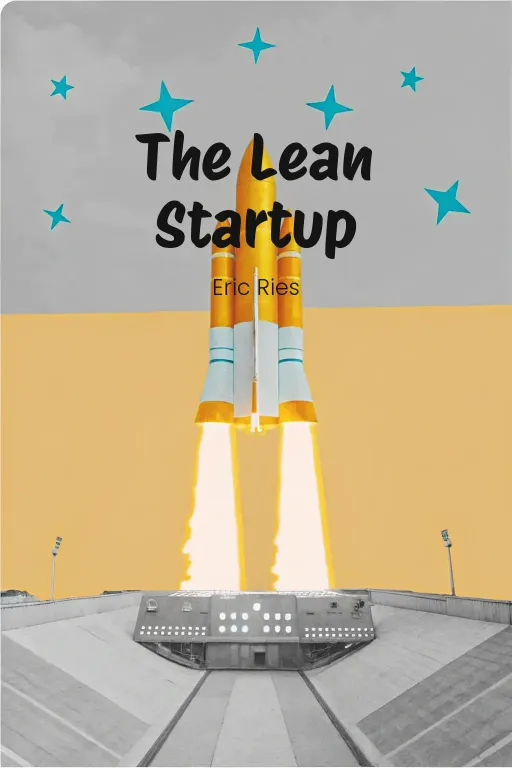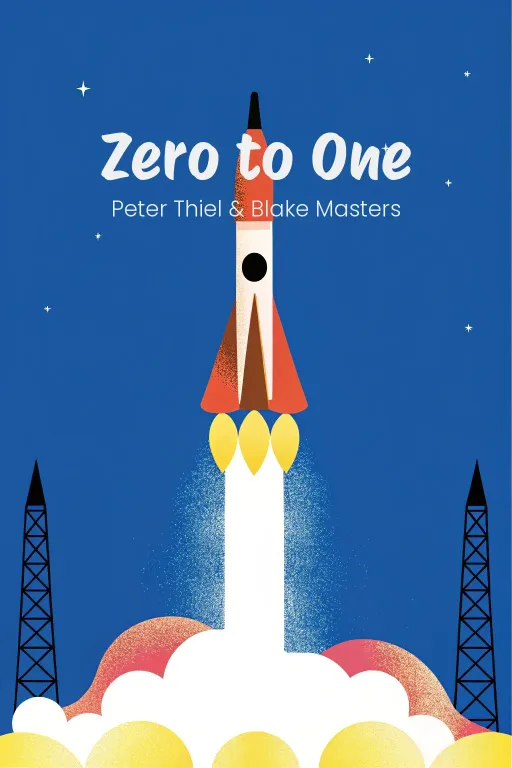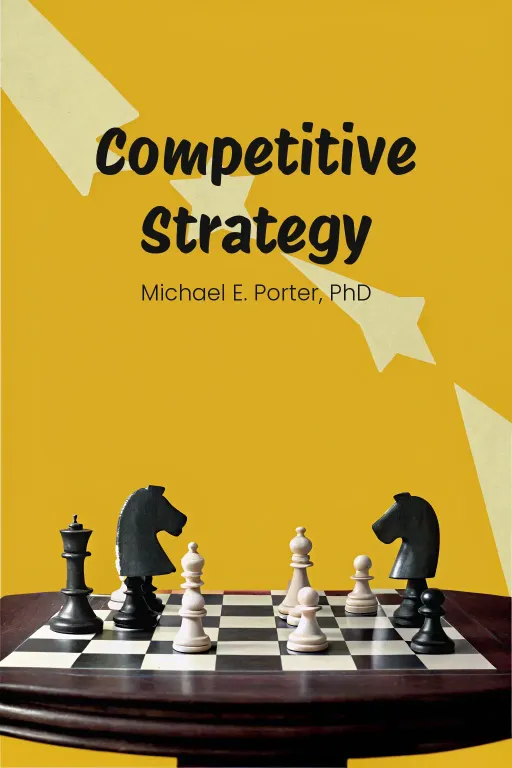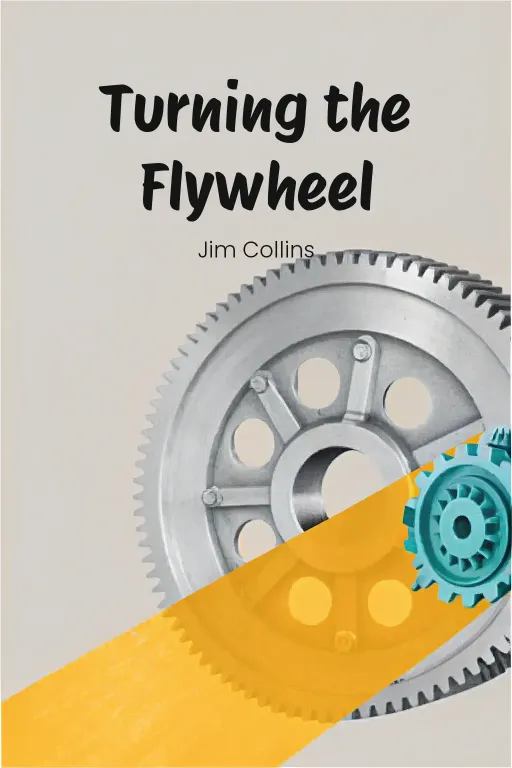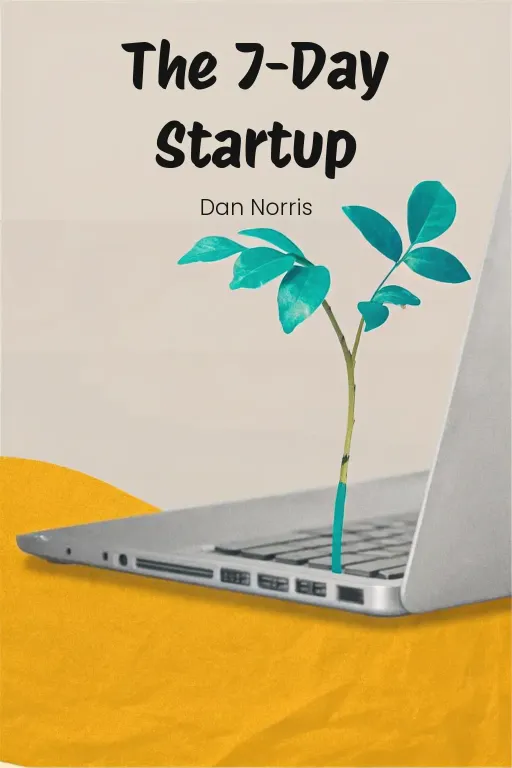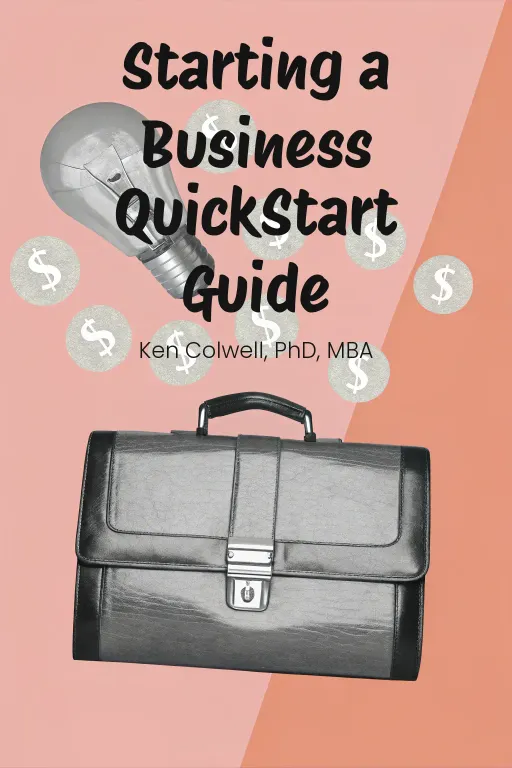
Build the Future: How to Innovate
Podcast by Let's Talk Money with Sophia and Daniel
Notes on Startups, or How to Build The Future
Build the Future: How to Innovate
Part 1
Daniel: Hey everyone, welcome to the show! Today, we're diving into Peter Thiel's "Zero to One." It's a must-read if you're interested in innovation, startups, and, well, building a truly “better” future. Sophia: And when Daniel says "better future," she's talking about skipping the next generic social media platform and actually inventing something game-changing. A flying car, perhaps? Daniel: Precisely! The core idea is super clear: true innovation, that "zero to one" jump Thiel talks about, that’s what really moves us forward. It's not about mimicking what’s already out there, but about envisioning and creating something totally novel. Sophia: Thiel definitely likes to stir the pot. He argues that monopolies – yes, monopolies! – are actually what drive innovation, not cutthroat competition. Sounds crazy, right? But he builds this interesting case for why companies should shoot for dominating niche markets rather than getting lost in a sea of competitors. Daniel: It’s not just about market positioning, either. Thiel goes deep into what makes startups tick, everything from having strong, aligned teams and forward-thinking leaders to really harnessing the power of human ingenuity and technology together. Sophia: So, we're going to unpack three big ideas from the book today. First, we'll tackle why real innovation leaves copycats in the dust. Next, we’ll dive into why monopolies might not be so evil after all. And finally, we'll look at how leadership and the right company culture can make or break a startup's chances. Daniel: Buckle up for insights, some healthy debate, and maybe even a few disagreements along the way. Let's jump in!
Innovation vs. Imitation
Part 2
Daniel: So, Sophia, we're diving into "Innovation vs. Imitation" today. It might sound like a simple "don't copy," but Thiel really digs deeper, right? Sophia: Yeah, "Innovation vs. Imitation," which at face value sounds like a kindergarten lesson on originality. But Thiel definitely cranks up the intellectual heat, doesn't he? Daniel: Absolutely! He basically says true innovation – that zero-to-one jump – is what fuels real progress, Way beyond just business, it lifts society. Just copying, moving from one to 'n', just doesn't cut it for big breakthroughs. Sophia: Okay, but let's be real. Is imitation always a bad thing? Sometimes building on what's already there is what moves things forward, no? I mean, look at Lyft. They weren't first, but they pushed Uber to be better. Daniel: That's fair, but Thiel would call that "horizontal" progress – expanding on something, not inventing it. Sure, there are benefits, but it can lead to a crowded market. Think of startups just copying ideas. They get stuck battling for the same limited resources. It's like fighting over the existing slices of a pie, instead of baking a whole new one. Sophia: Alright, so how do you bake that new pie, then? What's the secret ingredient? Daniel: Thiel highlights contrarian thinking and first-principles reasoning. Contrarian thinking involves asking, "What important truth do very few people agree with me on?" Finding the opportunities or problems others miss. Sophia: Hmmm, sounds good in theory. But if no one agrees with you, isn't there a pretty good chance you're just… wrong? Daniel: There's definitely a risk involved. But Thiel's point is that widely accepted ideas have already been explored. Contrarian thinking forces you to challenge assumptions, and if you're right, the upside can be enormous. Sophia: And this "first-principles reasoning"? Is that something Elon Musk would use while planning a Mars colony? Daniel: pretty much! It's about breaking a problem down to its core elements. You challenge every assumption and rebuild your understanding from the ground up, based on what you know to be true. It pushes you to find novel solutions, instead of blindly following the herd. Sophia: So, like reverse-engineering reality itself? Daniel: Exactly! Google is a perfect example. Back in the day, search engines like Yahoo used human-organized directories. Sophia: Right, searching back then felt like using an old, unreliable map. Daniel: Totally! Google's founders, Larry Page and Sergey Brin, threw out those old assumptions and asked, "What if a webpage's importance was based on how often others linked to it?" That led to PageRank, which ranked pages by authority, not human opinion. Sophia: And boom, the game changed. It wasn't just another search engine; it was the search engine. Daniel: Exactly! Google didn’t just tweak what was there, they reinvented information access. That zero-to-one leap didn't just solve a problem, it transformed the entire internet. Sophia: Okay, but not every reinvention ends up like Google. Remember the dot-com bubble? Seemed like everyone was claiming to be innovative, but a lot of it was just throwing stuff at the wall. Daniel: Oh, for sure. The dot-com bubble is a great cautionary tale. Companies like Pets.com were trying to mimic brick-and-mortar retail without anything truly new. All that money on marketing, remember the sock puppet? Sophia: Please tell me you remember the sock puppet Super Bowl ad... more effort went into the puppet than their business model, it seemed. Daniel: Totally! They imitated retail but ignored the unique problems of online business – like shipping eating up their profits. Moving from one to 'n' without offering something of unique value? Epic fail. Sophia: So, if Pets.com is the "don't do this" example, Apple's iPod is the success story, right? A true zero-to-one moment? Daniel: Exactly. MP3 players were already around, but they were clunky. Steve Jobs didn't want to just improve them, he wanted to reimagine experiencing music. Sophia: It wasn't just a product. It was a lifestyle, wrapped in that slick design, tied to iTunes... it was like a whole new religion. Daniel: The iPod became the heart of a totally new music ecosystem. It transformed how people connected to their favorite artists and, in the process, turned Apple into a cultural icon. That's the level of innovation Thiel talks about. Sophia: Okay, you've convinced me. True innovation creates opportunities you simply can't find by following everyone else. But why aren't more businesses doing this? Daniel: Thiel argues it's easier to follow trends than challenge them. It takes guts and a really clear vision to focus on unseen opportunities, instead of going for the easy win. Sophia: Which gets back to that contrarian question: seeing the present differently to predict the future. Risky, but the payoff can be massive. Daniel: Absolutely! That's the core of Thiel's philosophy: progress relies on people willing to jump into the unknown and build something truly new.
Monopolies Over Competition
Part 3
Daniel: So, moving from understanding innovation, we naturally arrive at how businesses can actually use this principle to avoid competition. Let's dive into Peter Thiel's argument that monopolies, not competition, should “really” be the goal for businesses. Sophia: Right, so this is about building on the innovation principle, but showing you how to sidestep the competitive chaos. Thiel's making a pretty bold claim, saying monopolies – which we usually think of as a bad thing – can actually be powerful for progress and creating value. Daniel: Exactly. Sophia: Okay, I'm listening, but skeptical. Monopolies? “Really”? Aren't they the villains in every Econ 101 textbook? Daniel: That's the traditional view, of course, but Thiel kind of flips that on its head. He argues that competition actually shrinks profit margins and smothers innovation. Companies are too busy fighting each other to think about those big, long-term breakthroughs. Monopolies, on the other hand, avoid those distractions and can “really” pour resources into innovation and growing. Sophia: Hmm, so competition's like a street fight, while monopolies are architects building their own city… Okay, I see the appeal. But how does a humble startup go from struggling to Amazon-level dominance? Daniel: Well, Thiel outlines four key things you need to build and keep a monopoly: proprietary technology, network effects, economies of scale, and strong branding. Think of them as the four walls protecting your market dominance. Sophia: Alright, let's break down these walls one by one. "Proprietary technology" sounds fancy. What does it mean, “really”? Daniel: It's having a unique, breakthrough innovation that others can't easily copy. It's your secret weapon, right? Think of Google. Larry Page and Sergey Brin developed the PageRank algorithm, a whole new kind of search engine, ranking websites based on link quality. That one technology gave Google a massive lead over its rivals and, you know, made it the go-to for web search. Sophia: So, basically, create something that's better and hope nobody reverse-engineers it. Daniel: Well, that's part of it, but proprietary technology isn't just about creating something slightly better. It's about creating something so transformative that it actually makes the old ways obsolete. Sophia: Got it. Then there are network effects, which I think make platforms like Facebook or LinkedIn practically unassailable, yeah? Daniel: Exactly. The more people use a product, the more valuable it becomes. It's self-reinforcing. Facebook is the classic example. People joined because that's where their friends were, and the growing user base only made it harder for competitors to win users away. Sophia: It’s like being the only bar in town where everyone hangs out. Suddenly, a new bar across the street isn’t all that appealing. Daniel: Right. And network effects make it incredibly difficult to disrupt an established monopoly. Once enough customers and businesses are deeply invested in your platform, the cost of switching platforms just becomes too high. Sophia: Alright, so proprietary tech and network effects are built on being first or best. Where do economies of scale fit in? Daniel: Economies of scale are “really” about efficiency. As a company grows, its per-unit costs go down. This allows monopolies to lower prices while staying profitable, making it hard for smaller players to compete because they can't match that cost structure. Sophia: Walmart feels like the prime example. Their scale lets them negotiate prices and logistics in a way a small shop never could. Daniel: Exactly. And Amazon's another classic. Its massive fulfillment network and logistics give it unmatched cost advantages. That economy of scale isn't just a barrier to competitors; it's a platform for continuous innovation. Sophia: Bringing us to the last wall of our fortress: branding. We all love a good logo, but how does branding create a monopoly, exactly? Daniel: Strong branding builds an emotional connection with customers, more than just recognition. There's trust and loyalty involved. Apple is a master of this. Sleek design, the "Think Different" ethos—it's not just a gadget; it’s a lifestyle. Sophia: And people are willing to pay a premium for that lifestyle. Branding's like the invisible moat around the castle of a monopoly. Daniel: Precisely. It reinforces the experience and makes competitors' offerings look less appealing, even if they're cheaper or more functional. Sophia: So, combine these four things, you build an impenetrable fortress. And Amazon is how to do it right, yeah? Daniel: Absolutely! Amazon began as an online bookstore, but Jeff Bezos leveraged these monopoly principles to dominate retail and then cloud computing via AWS. Sophia: Right, Amazon's secret sauce isn't just selling books. It’s algorithms, logistics, and that ecosystem where third-party sellers go to their platform. Daniel: Exactly. Those proprietary algorithms create a great shopping experience. Network effects then brought more sellers and customers to the marketplace. And then add to that its economies of scale, and its strong customer trust through branding—Amazon essentially turned the e-commerce industry into its playground. Sophia: Okay, flip the script. What happens if a company ignores these principles and jumps into head-to-head competition? Daniel: It's not a pretty picture. Take Pets.com during the dot-com bubble. Instead of innovating or creating long-term value, they dumped millions into unsustainable marketing. Sophia: Oh yes, the sock puppet millionaire! Or, well, not so much. Daniel: Exactly. They didn't differentiate their product, ignored high shipping costs, and burned through all that investor money. The result? Collapse. All because they chose prioritizing competition over building a durable, unique value proposition. Sophia: A sobering lesson. On one hand, Amazon—strategic, unstoppable. On the other, a parade of failed imitators fighting over scraps and losing. Daniel: Exactly. And that's why Thiel calls for contrarian thinking and monopoly building. Instead of trying to elbow out competitors, create a whole new, unchallenged market. Sophia: So, monopolies aren't just about greed—they can actually drive progress by giving companies room to innovate, scale, and change things. Daniel: Precisely. Done right, monopolies can redefine industries and add some real value to society.
Founder Leadership and Team Dynamics
Part 4
Daniel: So, with the whole "monopolies as a strategic goal" idea laid out, the conversation naturally shifts to the people and processes that actually make these businesses tick. Which brings us to a really crucial part of Zero to One: founder leadership and team dynamics. Sophia: Right, so we've basically covered that aiming for a monopoly is the goal, and innovation is how you get there. Now, we’re talking about who's actually behind the wheel, driving the thing. Because, let's be honest, the best ideas are just that – ideas – without the right people to execute them. Daniel: Absolutely. And Thiel is pretty clear on this point—founders set the tone. They’re not just making decisions; they’re shaping the whole vision, the culture, everything about where the company goes. Their leadership can really be the deciding factor. Sophia: Makes you think of Elon Musk, doesn't it? He's the perfect example of "love him or hate him" founder leadership. You can't deny the impact he's had. Daniel: Exactly. Musk embodies what Thiel describes as the ideal founder—someone with a really clear, game-changing mission. Look at SpaceX: the goal of making humanity a multi-planetary species, it’s not just visionary, it’s audacious. And that kind of goal requires a leader who can inspire people to tackle challenges that most of us can't even imagine. Sophia: Right, but let's look at the other side. Musk's also known for creating these super high-pressure work environments that can push people to the breaking point. For every amazing engineering feat, you also hear stories about burnout and employee dissatisfaction. Daniel: That’s the interesting duality of these visionary leaders. That intensity, that drive, that laser focus, it can fuel incredible achievements, but also cause some real friction within the organization. Steve Jobs is another great example. His high standards led to things like the iPhone, but his style definitely rubbed some people the wrong way. Sophia: It's a really delicate balance, isn't it? You need someone who's going to push for the extraordinary, but that kind of pressure can also break the team if it isn't managed well. Daniel: Right. And that's where Thiel emphasizes turning that personal drive into a sustainable culture. A founder can't just have the vision; they need to get the team on board in a way that really connects with everyone's energy and commitment. Sophia: So, speaking of team culture, Thiel brings up something that I found really interesting: hiring. How much of building a strong culture comes down to just picking the right people from the beginning? Daniel: Well, a lot of it does. Particularly in those early-stage startups, hiring isn’t just filling slots. It’s about building a team that really believes in the mission. It reminds me of the "PayPal Mafia." People like Thiel and Max Levchin built this group of employees who not only made PayPal successful but went on to create things like YouTube, LinkedIn, and Yelp. Sophia: Those guys weren't just colleagues, they were like a hidden innovation think tank. So, what made that group dynamic so effective? Daniel: Cultural alignment. Thiel and his team weren’t just looking at resumes; they were looking for people who “really” bought into the idea of simplifying digital payments. They all wanted to succeed, and that gave them the resilience to overcome things like fraud and market skepticism. Sophia: So, instead of all the fancy perks and ping-pong, it’s more about having solid trust and shared goals as a foundation. Daniel: Exactly. It's that cohesion that kept them together during those tough times. And the same qualities that helped PayPal survive those early setbacks also helped its alumni succeed later on. It’s proof that culture can outlast individual success. Sophia: Okay, but let's be real—alignment doesn't pay the bills. Thiel also talks a lot about aligning incentives. So, what role do rewards play in keeping people motivated? Daniel: It's a big one. Founders who want that long-term commitment need to structure incentives carefully. It's not just about the salary—equity, or giving employees a piece of the ownership, is one of the most powerful tools a startup has to make people feel like they're truly invested. Sophia: “Skin in the game,” right? If everyone benefits from the successes, they’re more likely to stick around and give it their all. Daniel: Exactly. Look at Tesla. Those early employees weren't just following Musk's vision; they were tied to its success through their stock options. And that shared stake was a total game-changer for loyalty and motivation. Sophia: But equity can be a minefield, right? What about the resentment when new hires feel like they're getting a smaller piece of the pie? Daniel: Exactly. Thiel warns about this. You have to carefully balance how you distribute equity to reward contributions fairly without creating conflict. Transparency can help, but it's a double-edged sword. It can build trust, or it can amplify dissatisfaction if people see disparities as unfair. Sophia: So, it's a tightrope walk. Mess it up, and you end up with a high-stakes office drama instead of actual collaboration. Daniel: Precisely. That's also why founders have to lead by example. Like Aaron Levie from Box—he paid himself less than his employees in the early days to show his belief in the company. That kind of action sends a strong message of shared sacrifice. Sophia: Levie sounds like the opposite of a stereotypical "greedy CEO." That's pretty refreshing—and I bet it built a lot of goodwill with his team. Daniel: Definitely. It strengthened the sense of unity. When founders visibly share the same risks and hardships as their team, it fosters so much more loyalty. Sophia: On the other hand, what happens when founders just completely ignore culture or incentives? Daniel: It can be a disaster. Startups without that cultural alignment or fair incentives often end up with teams that are fragmented and have a high turnover rate. Thiel points out that many cleantech companies failed, not because the ideas were bad, but because the teams just couldn't work together effectively. Sophia: So those teams just fell apart under pressure, even when the tech had potential. Daniel: Exactly. Which is why Thiel sees leadership as the real foundation for lasting success. Founders aren't just there to come up with strategies; they're shaping the whole tone of the company. Sophia: So their job isn’t just about being the loudest in the room. It’s about creating an environment where everyone can thrive. Daniel: Exactly. Founders who balance big ambitions with solid cultural values aren’t just building profitable companies—they’re inspiring teams to achieve something truly impactful. And that’s the core of Zero to One. Sophia: That's “really” the heart of the book, isn't it? Innovation sparks the fire, but it’s leadership and team dynamics that keeps it burning.
Conclusion
Part 5
Daniel: Okay, let's bring it all together then. "Zero to One," at its heart, it's really about challenging how we even think about innovation, right? True progress isn't just about copying what's already out there. It's about creating something brand new, going from "zero to one," instead of just, you know, doing more of the same. Sophia: And this idea of monopolies, I know, it can sound a bit scary to some. But Thiel's point is that they can actually be innovation powerhouses, right? If you dominate a specific niche and really focus on creating huge value, you've got the freedom to really drive progress over the long haul. Daniel: Exactly! And then there's the people side of things—the founders, the teams. It starts with visionary leadership, someone to set the direction. But you also need everyone aligned, working towards the same goals with a really strong company culture. Whether it's Tesla changing how we think about transportation or PayPal pioneering digital payments, it always comes down to people with a shared mission. Sophia: So, what's the big takeaway here? Progress doesn’t just happen, does it? It has to be intentional, and it has to be bold, and often, maybe even a little unconventional. If you want to build the future, you can’t just follow the crowd, you’ve got to think differently, lead fearlessly, and make something that's uniquely yours. Daniel: Absolutely. And that's the challenge we'll leave you with: What's your zero-to-one idea? What's that unique insight or vision that only you can bring to life? Think about that and… start building your future today! Sophia: Until next time, keep asking questions, keep dreaming big, and go make something amazing. Daniel: Thanks for listening, everyone! See you in the next episode.
